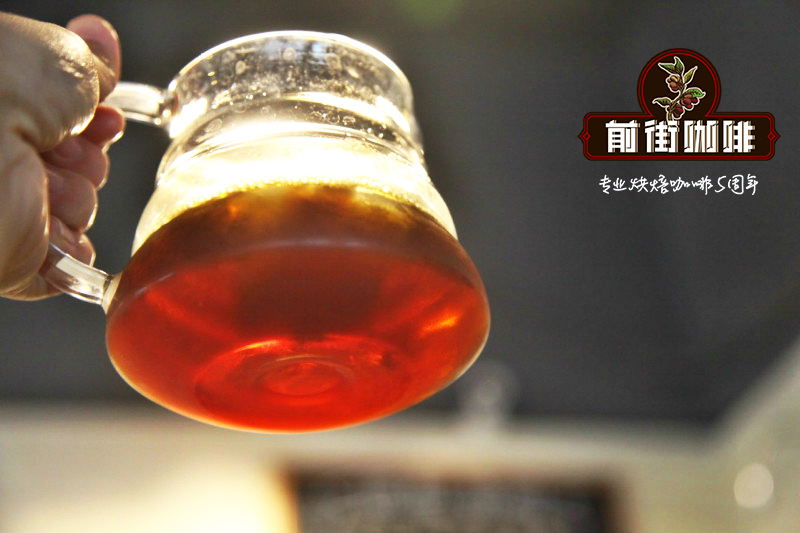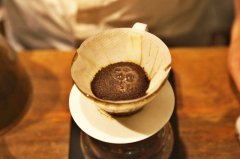The basic knowledge of a coffee apprentice. Ten little things about coffee.

Professional coffee knowledge exchange more coffee bean information please follow the coffee workshop (Wechat official account cafe_style)
1. Are coffee beans "beans"?
Coffee beans are not beans. They are baked from the seeds of coffee trees. Coffee is an evergreen shrub of the genus Coffea of Rubiaceae. There are about 70 species of coffee, but there are only three most important commercial crops: Arabica, Congo (also known as Robsta) and Leibiria. Arabica and Congo coffee beans are popular with most people, accounting for 99% of the world's production. The Liberian species is not popular because of its flavor, and is traded only in West Africa and does not circulate around the world.
two。 What are the common treatments for coffee beans? How will it affect the flavor?
There are three common treatments: sun exposure, water washing and honey treatment. As the name implies, solarization means that the whole fruit is exposed and dried, resulting in a rich flavor. The washing rule is to remove the pulp, ferment and remove pectin before drying, the raw bean has a sour taste and a clean flavor. Honey treatment is to peel the fruit, together with pulp and pectin to dry, the process needs to keep turning to avoid sticky, more difficult, can reduce the acidity of coffee beans and bring meticulous aroma.
The top ten coffee knowledge you must know
3. How many steps does it take before a coffee fruit becomes a cup of coffee?
The fruit is usually called coffee cherry, which is treated after harvest, unifies the size and removes the inferior beans, and becomes the raw bean transported to various countries; the single raw bean is roasted and ripe, which is called single bean, and the mixed bean is called formula bean. Deliver it to baristas or enthusiasts, grind it into powder and fill it with extraction tools, which are all-inclusive, such as coffee maker, hand punch, wind kettle, Philharmonic pressure, etc., and finally inject hot water into a cup of coffee.
4. What are new beans and old beans? What's the difference in flavor?
New beans refer to the raw beans harvested in the same year, and the color is usually green because of their freshness and high water content. Old beans refers to the preservation of new beans in a temperature-controlled and humidity-controlled environment for several years, or even decades, the process is called bean cultivation, with the longer the time, the lower the water content, the color becomes light brown, and the ingredients and tastes change gradually. It is said that the taste of old beans will be milder and more palatable, but it is also possible that raw beans lose their flavor because of improper cultivation. Which is better, old beans or new beans? In fact, it has nothing to do with good or bad, it's just a personal preference.
The top ten coffee knowledge you must know
5. When buying, should I buy coffee beans or coffee powder with a better flavor?
Coffee powder on the market is indeed very simple and convenient, but it deteriorates several times faster than coffee beans. When coffee beans are ground into powder, they lose about 70% of carbon dioxide, which can protect coffee from deterioration caused by oxygen and moisture. As it loses, the aroma of coffee will fade. So buying coffee beans is a recommended choice.
6. Is there a shelf life for coffee beans? How to save it?
It is generally believed that raw beans can be preserved for three years, or even decades, but the preservation environment requires attention to temperature and humidity. In order to maintain the best condition of new beans, operators usually keep coffee beans in a ventilated and cool warehouse and control the humidity to avoid spoilage and mildew. The shelf life of coffee beans is usually half a year to one year, but it refers to the safe taste period. if you want to taste the best flavor, it is recommended to keep it in a sealed, dry, constant temperature state after opening, and use it within a month.
The top ten coffee knowledge you must know
7. Why does the origin of coffee beans affect the flavor of coffee?
Coffee is a crop, and its taste is affected by the soil, climate and treatment process, just as the concept that red wine tastes different from grape origin is similar. Take the coffee beans used in Benazon products as an example. Mantenin is produced in Sumatra, Indonesia, which is characterized by rich, mellow, fragrant and bitter flavor, with a little sweetness. Isopia coffee beans often use the sun method, which brings lively, rich fruit tonality and aroma. Colombia, on the other hand, has a gentle taste and sweet caramel coffee beans with a long-lasting and well-behaved finish, which has always been highly accepted by people.
8. Will the roasting degree of coffee beans change the taste? What is the degree of baking?
Yes, although there are differences in degree, the deeper the roasting degree of each kind of coffee, the weaker the sour taste and the stronger the bitter taste. Roasting degrees are usually distinguished according to the color of coffee beans. The names from light roasting to deep roasting are: light roasting, cinnamon roasting, medium roasting, high baking, urban baking, deep city roasting, French roasting and Italian roasting.
The top ten coffee knowledge you must know
9. How to get a high score of "Coffee Review" in baking?
We believe that the quality of a cup of coffee is determined by the quality of raw beans, so we are very careful in selecting beans, such as high-quality beans confirmed by ICO International Coffee Organization and low defect rate. In addition, although the roasting degree of coffee beans on the market is often distinguished by color, there are professional coffee appraisers in the Benazon research and development department, and they also attach great importance to all kinds of scientific data to accurately determine the excellent roasting degree of each kind of beans, showing its best flavor.
10. Will different brewing methods change the flavor of coffee?
Right. In fact, the process of brewing coffee is to control the extraction amount of various ingredients in coffee beans, so the taste produced in different ways will also change. Three major factors: the thickness of coffee powder, the temperature of hot water, and the time of extraction. To put it simply, the finer the coffee powder is, the more bitter the water temperature is, and the longer the extraction time is, the more bitter the taste will be. No matter what kind of coffee brewing equipment is controlling these three factors, testing the barista's skills!
Important Notice :
前街咖啡 FrontStreet Coffee has moved to new addredd:
FrontStreet Coffee Address: 315,Donghua East Road,GuangZhou
Tel:020 38364473
- Prev

How do Starbucks espresso order espresso? Is the espresso good?
Professional coffee knowledge exchange more coffee bean information Please pay attention to the coffee workshop (Wechat official account cafe_style) Espresso has always been a very high status in the hearts of coffee lovers, not only because of its rich taste, pure Italian origin, but also because Espresso for baristas is not only a test of skills, more is the knowledge and love of coffee.
- Next

What is the WBC competition? coffee WBC contest 2018 Coffee WBC contest official website
For more information on coffee beans, please follow the coffee workshop (Wechat official account cafe_style) WBC, whose full name is World Barista Championship, which is translated into Chinese as the World Barista Competition, organized by WCE (World Coffee Events, the joint sub-association of SCAA (American Coffee Association) and SCAE (European Coffee Association). WCE is fixed every year
Related
- Beginners will see the "Coffee pull flower" guide!
- What is the difference between ice blog purified milk and ordinary milk coffee?
- Why is the Philippines the largest producer of crops in Liberia?
- For coffee extraction, should the fine powder be retained?
- How does extracted espresso fill pressed powder? How much strength does it take to press the powder?
- How to make jasmine cold extract coffee? Is the jasmine + latte good?
- Will this little toy really make the coffee taste better? How does Lily Drip affect coffee extraction?
- Will the action of slapping the filter cup also affect coffee extraction?
- What's the difference between powder-to-water ratio and powder-to-liquid ratio?
- What is the Ethiopian local species? What does it have to do with Heirloom native species?

